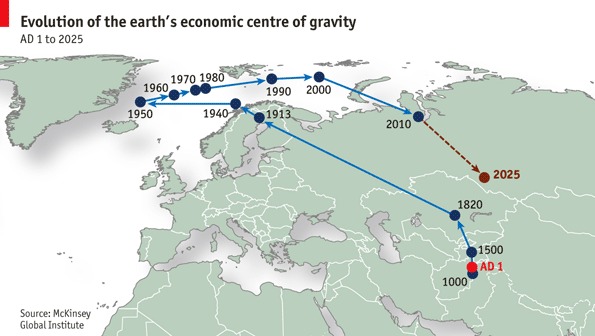For and Against Dropping the Atomic Bombs on Japan
I missed the anniversary of the atomic bombing of Japan and VJ day as I was busy with travel.
Including long-term effects, perhaps 200,000 people were killed by the atomic bombs dropped on Hiroshima and Nagasaki. This has led to 80 years of questions about whether the bombs should have been dropped.
Best Argument Against:
Nuclear weapons are a horrible weapon that had little or no military value were they were dropped in Japan. Their sole role was mass killing civilians, something we and most nations considered a war crime until about 1940. While the US was not the one to initially break taboos against terror bombing of civilians, we joined in enthusiastically given that strategic bombing fit so well with our technological and economic advantages, not to mention a national sense that bombing was a "cheaper" way to win a war, at least in terms of US casualties (a bias that has never really gone away). For everything written below, I still think this argument dominates, though for reasons stated below it was an impossible position at the time.
Worst Argument For:
"The atomic bombs in Japan killed fewer people than the fire bombing of Tokyo." This is a lame moral position, boiling down to "well, we did worse stuff."
Worst Argument Against:
A very common argument against the bombing was that the blockade of Japan was working and would have eventually strangled Japan and brought it to its knees. This is likely true. But starvation and related diseases were already killing as many as 50,000 or more a month, and likely higher. Even with the sudden end of the war and the reopening of trade and some American food aid, there were hundreds of thousands of Japanese civilian deaths due to hunger and related diseases. Opponents of the bomb frequently argue that the blockade alternative was more humane somehow, but 6 more months of Japanese holding out would likely have led to the deaths - slow, horrible deaths - of far more Japanese than died in Hiroshima and Nagasaki.
Contemporaneous Arguments For:
- I don't think modern audiences understand how tired Americans were of the war. There was simply zero support for a decision to spare Japanese civilians in exchange for a longer war and more American death.
- There is an ongoing argument about how many American lives were saved by not having to follow through on the American invasions of Japan. Personally I think we would have seen at least 10x the casualties suffered on tiny Okinawa, which would mean 500,000 American casualties invading Japan. Opponents of dropping the bomb have argued, implausily I think, that the total would have been 100,000 or less than the death toll in Hiroshima and Nagasaki. But this is only American casualties. In Okinawa the Japanese army and civilians died at a rate 5x that of American killed and wounded. So even at the lower estimate of 100,000 US military dead the total human death toll would have been over a half million.
- The leadership of Japan was simply not going to budge and make peace on any sort of terms close to unconditional surrender. Some said they were interested in a negotiated peace, but on terms the US would never have accepted (eg Japan holds on to Manchuria). After the first bomb no one in the Japanese leadership changed their position. After the second bomb almost no one changed their position -- only a shift by the Emperor and a few of those around him turned the tide, and even so there were last minute efforts to thwart peace among hardliners (up to and including attempts to steal the recordings of the Emperor's broadcast and take the Emperor into custody "for his own protection").
- There was likely some racism involved in the decision, but had the bomb been available we would probably have bombed the mayonnaise-white Germans given the opportunity. Weird racist theories would pop up about the Japanese from time to time -- eg that the shape of their eyes would affect their vision and thus make them poor pilots, a theory that got disproved pretty dramatically early in the war. But Americans never could understand the cultural norms that caused Japanese soldiers to fight to the last man, even when the fighting was pointless. It looked to Americans like a death cult, and completely alien, and eliminated any small empathy that might have existed after 4 long years of war.
Ex Post Argument Against:
- The Russians were coming. The Russians invaded Manchuria after the first bomb was dropped. The bomb may have slightly accelerated their time table but not by much. In line with their previous commitments at international conferences (and their own desire to grab some territory), they were preparing to invade in August of 1945 (3 months after the defeat of Germany) and had spent much of the summer moving troops across Siberia. By this time the US, which had begged Russia to join the war with Japan in 1944, was starting to regret this decision. The Russians were quickly and immensely successful, rolling through the Japanese forces like they did not exist. They had plans to invade the island of Hokkaido within weeks. This terrified Japanese hardliners -- who were strongly anti-communist -- as well as the US which was already coming to suspect that the Russians were not going to leave the Eastern European countries they had overrun. We could have left the hard fighting for Japan to the Soviets, but we did not want the Soviets permanently ensconced in the Japanese Islands. You can see this fear in some of the American actions -- in particular how fast the second bomb was dropped. When the Russians invaded the whole time-table accelerated with the US racing to end the war with Japan before the Soviet steamroller took too much territory. While leaving it to the Russians would have saved American lives and prevented the atomic bombings, it almost certainly would not have reduced total Japanese deaths and long-term suffering.
Ex Post Argument For:
- Nobody has dropped one since. Counter-factuals are always hard, but personally I am convinced that if the bombs had not been dropped on Japan, some idiot would have dropped them somewhere else -- perhaps on a large Chinese city in the Korean War. This is an awful argument to make, I admit, but perhaps only a demonstration of their horror changed attitudes about atomic bombs.


